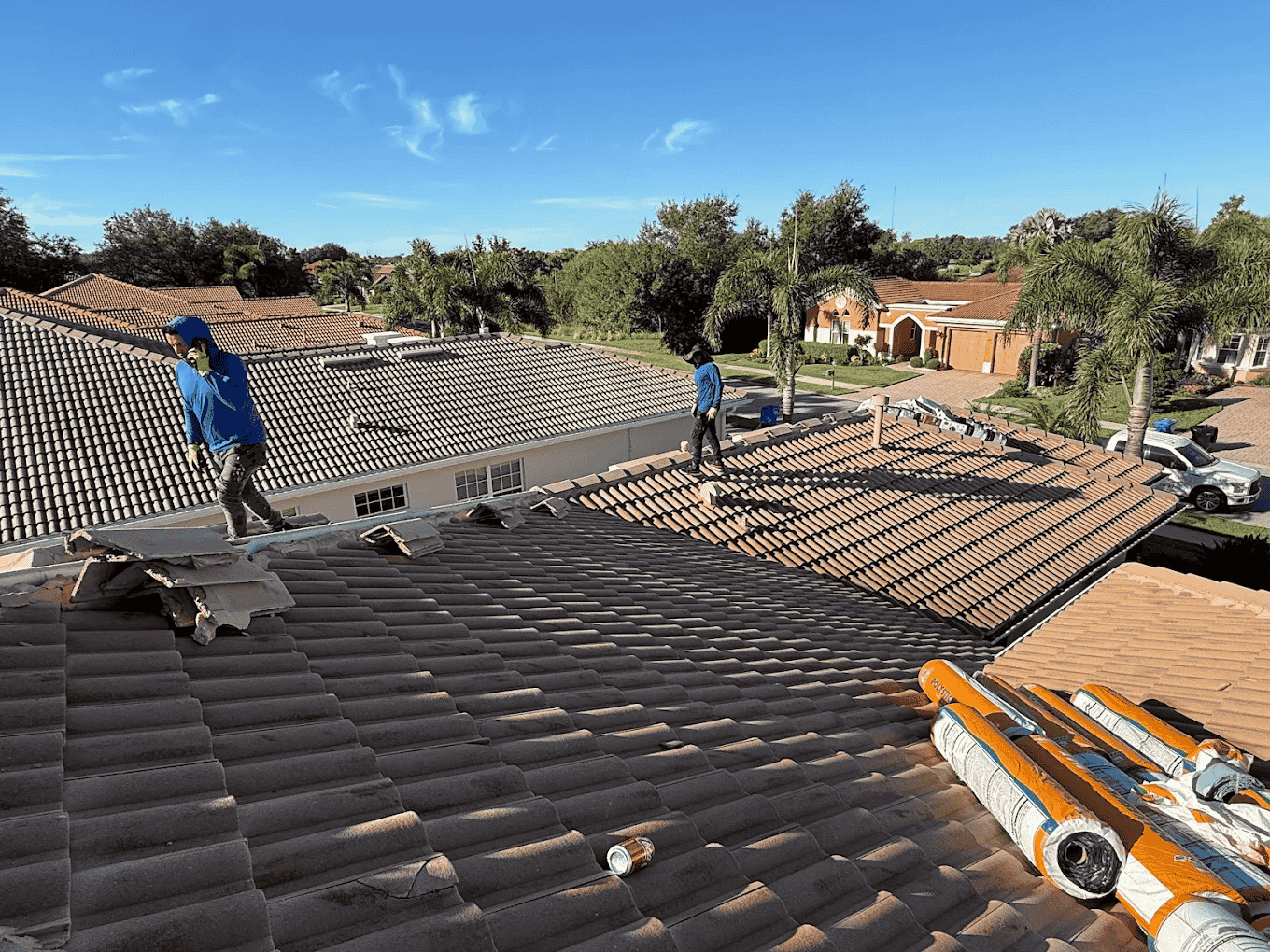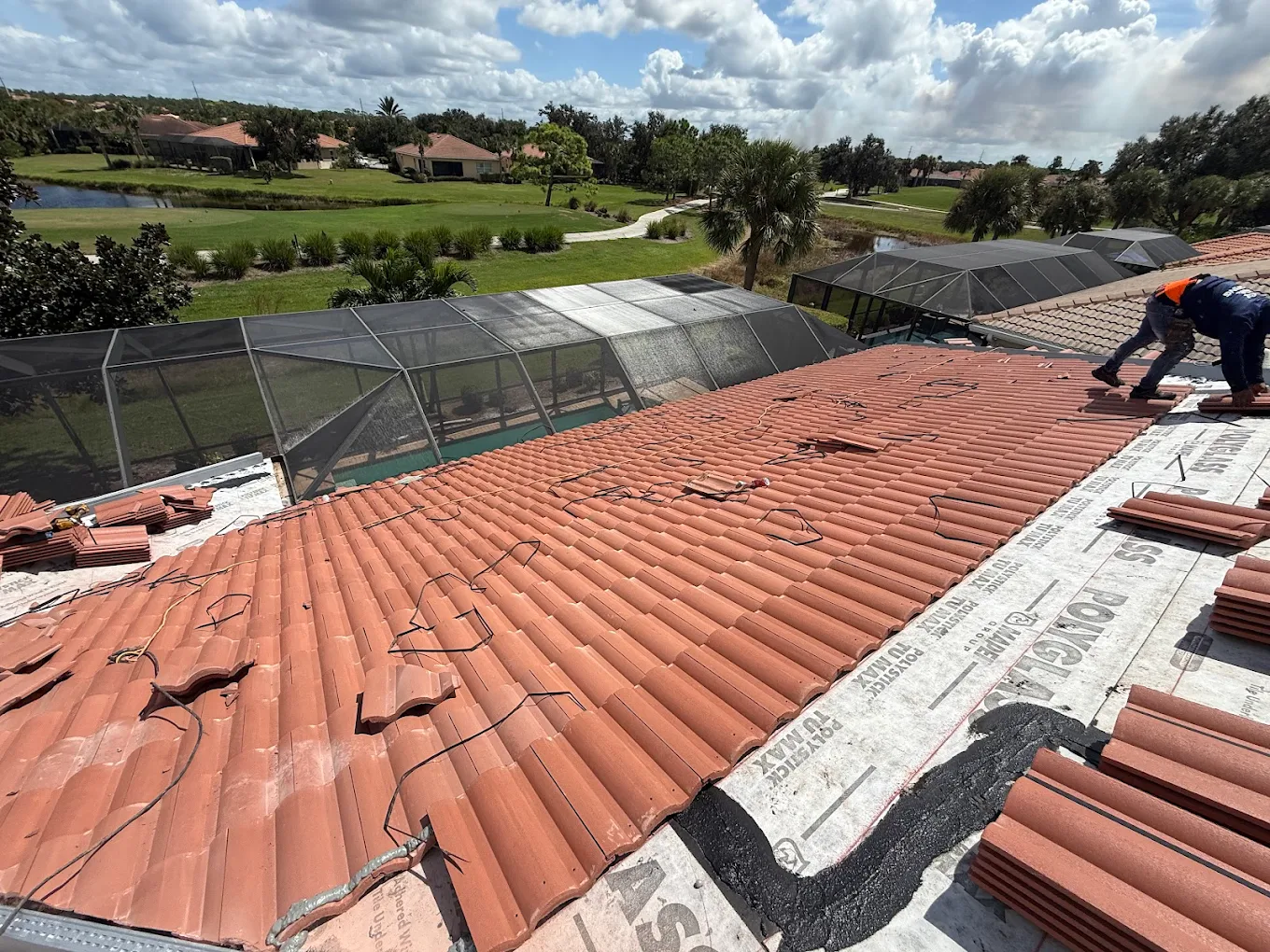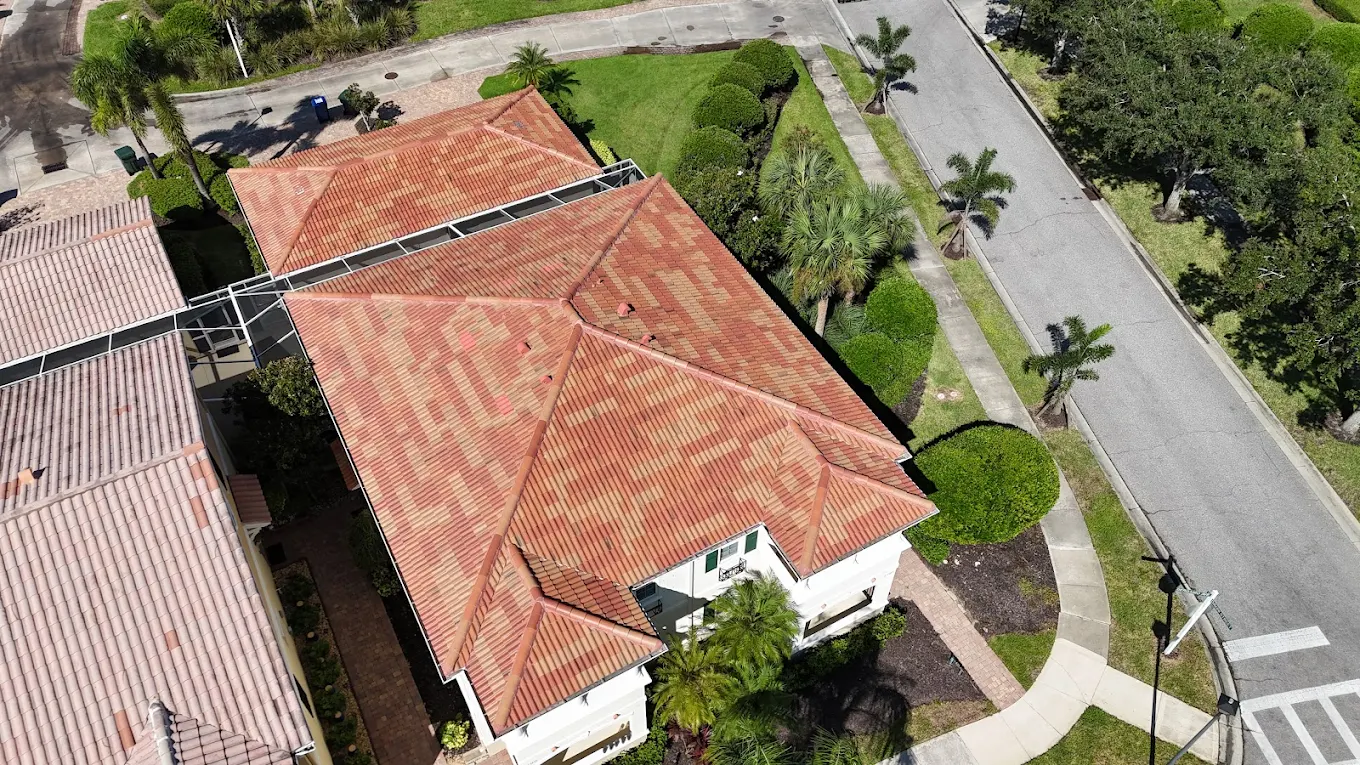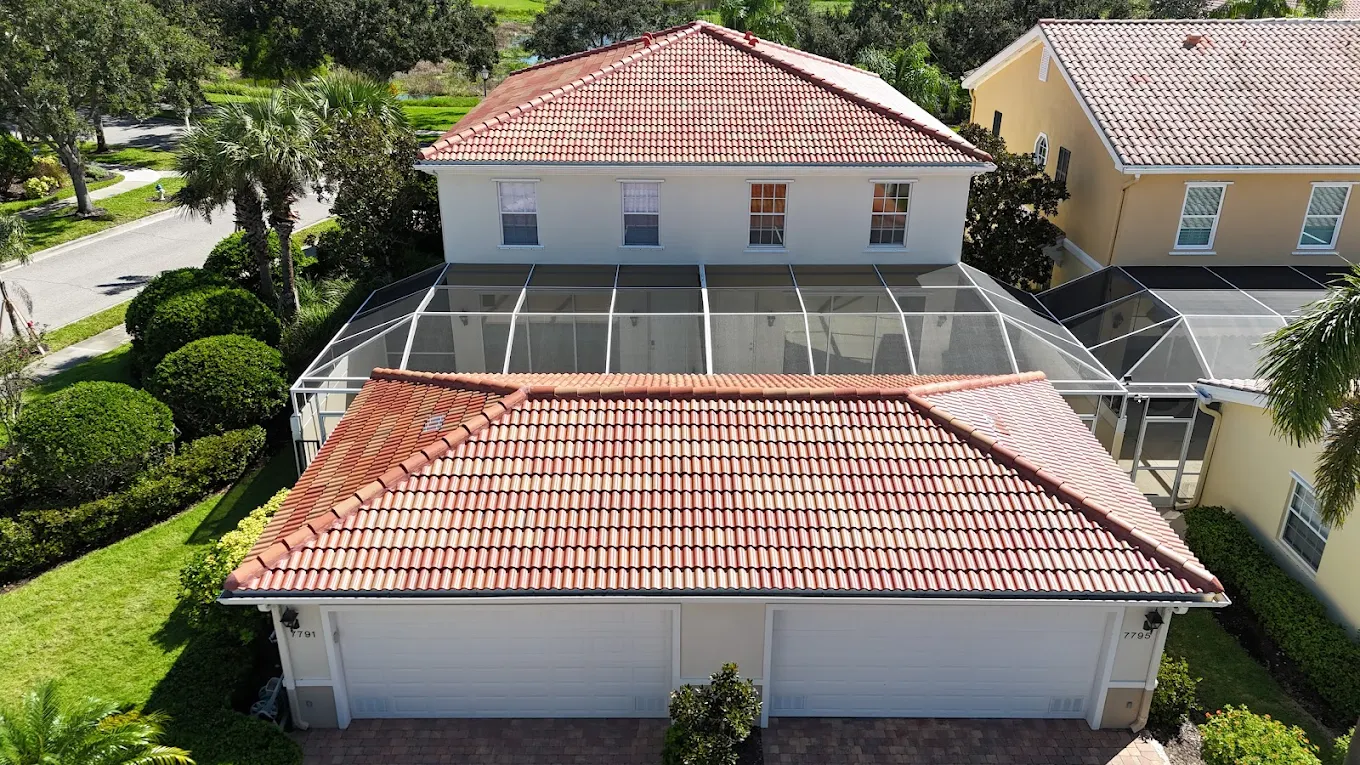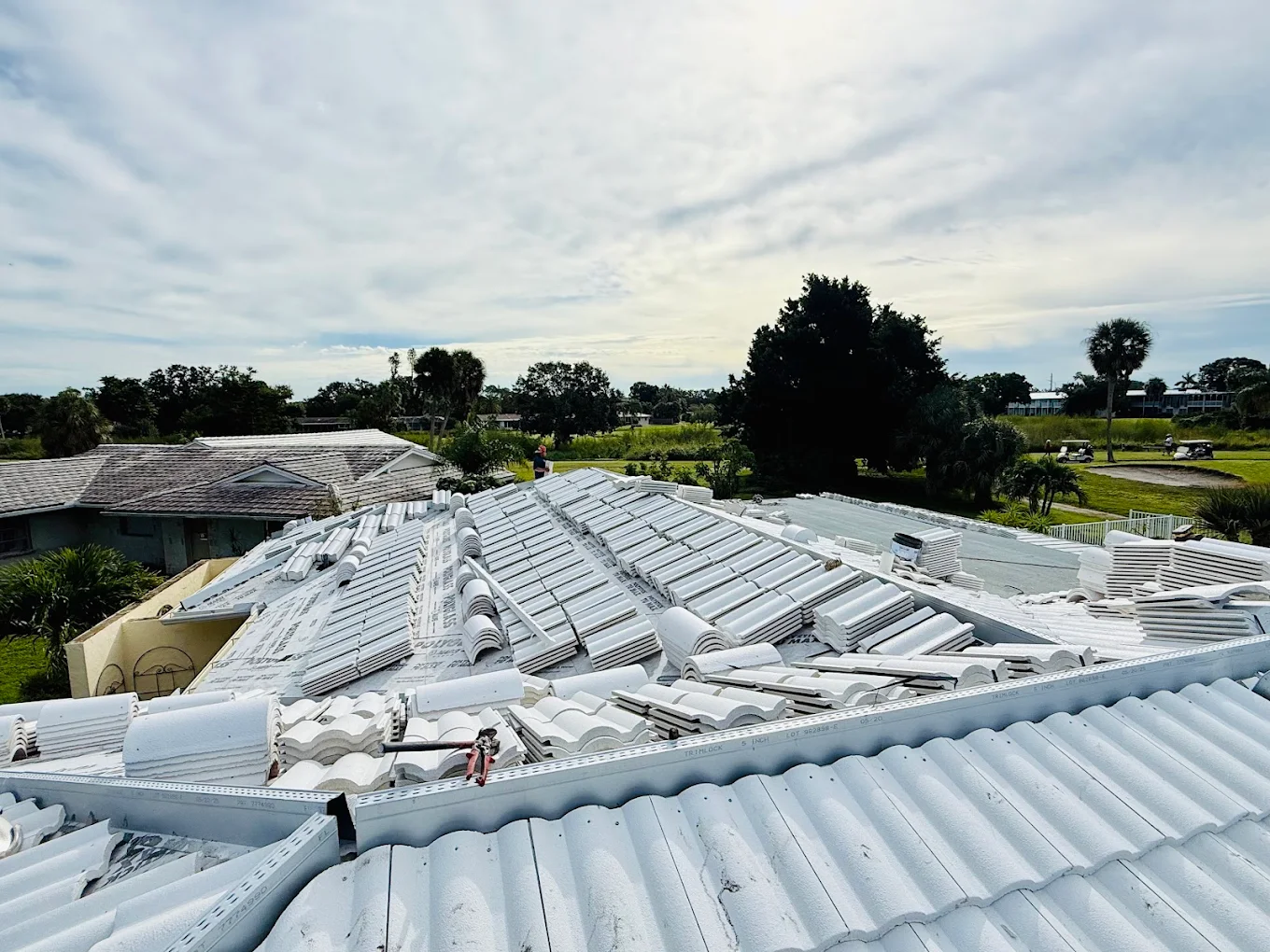How to Choose a Roof Repair Company in Lakewood Ranch
When you spot a drip in the ceiling, a broken tile, or other minor roof damage, your first impulse may be to “just patch it and move on.” But even small repairs, when done poorly, can lead to big headaches later — especially in Florida’s climate. Choosing the right roof repair company is more than just picking a name off a directory. In this guide, I’ll walk you through exactly what to look for, how to compare pros, and how to ensure you get a repair that truly protects your home.
Homeowners in Lakewood Ranch often face non‑urgent but necessary roof repair needs — maybe a leak after a heavy storm, a cracked tile, or water stains in the attic. This is middle-of-funnel content: you're already aware you need a repair, and now you’re deciding which company to trust. Let’s get you well-informed and confident.
What Counts as a Repair vs. a Replacement?
Before you start vetting contractors, it’s helpful to understand whether your roof issue truly qualifies as a repair — which a good roofer should be able to address affordably and reliably — or if your roof is edging toward replacement.
Defining a “Repair”
A repair is a localized fix: patching leaks, replacing a few broken or cracked tiles, resealing flashing around chimneys, valleys, vents, or gutters, or reinstalling underlayment or flashing in a small area. These are issues that don’t affect the structural integrity of the roof system or require tearing off large sections of tile.
In Lakewood Ranch — where most homes have tile or similar roofing systems — a competent company can generally handle:
● Cracked or slipped tile
● Flashing or sealant failures around chimneys, vents, and skylights
● Minor leaks or water intrusion affecting small areas
● Gutter or downspout-related roof water damage
If the damage is isolated, does not extend deeper into the sheathing or structure, and doesn’t cover a large swath of your roof, it’s likely a repair scenario.
When It Becomes a Replacement or Re-cover
On the flip side, if a large portion of your roof is damaged (for example, more than 25% within a year), or if the structural sheathing is compromised, or if the underlayment across whole sections must be replaced, you’re likely in replacement territory. In Florida, state and building codes often require that if you exceed a certain repair threshold, the entire roof must be brought up to current code — effectively mixing repair and replacement.
A true replacement is a full tear-off (or re-cover in limited permitted scenarios), installation of new underlayment, flashing, and tile. That’s an investment in longevity — and it’s often better handled by roofing companies that explicitly state they install tile roofs (like Pelican Roofing) rather than ones that dabble in patchwork only.
So the first question you should ask yourself:
Is this a minor, repair-level issue, or is the damage widespread enough to demand replacement? The answers you get (from inspectors or initial walkthroughs) will influence your ideal contractor.
Why You Should Fix a Small Leak Immediately
One reason many homeowners delay roof repairs is that the damage seems minor, so it feels like “just wait.” But in Florida’s heat, humidity, sun, and frequent storms, that small issue can compound quickly. Here’s what delaying a repair often leads to:
● Hidden damage expands. A small crack or leak can let water creep into insulation, ceiling, drywall, or even structural wood. What begins as a drip can turn into framing rot or mold inside walls.
● Leak migration. Water doesn’t always fall straight down. It can travel along beams, sheathing, or interior framing to reappear in unexpected places, making diagnosis harder.
● Worsening underlayment. The underlayment (the layer beneath your tiles) may degrade further when exposed to moisture over time, requiring larger repairs.
● Higher cost over time. A small fix today avoids paying for major repairs or partial replacements later.
● Insurance or warranty issues. Some warranties or homeowner insurance policies may deny coverage for damage that could have been prevented if repairs were delayed.
Yes, you should fix a small leak now. It’s cost-effective and helps preserve the life of your roof.
How to Compare and Vet Roof Repair Companies
Once you're convinced you need a repair, the next question is: which company do you hire? Here’s how to make that comparison meaningful.
1. Local Experience & Reputation in Lakewood Ranch
You want a roofer who knows the local conditions — especially for tile roofing — and has performed work in neighborhoods like yours. A contractor familiar with Lakewood Ranch will understand local codes, weather patterns, HOA requirements, and the kinds of roof systems found here.
Look for reviews, Better Business Bureau ratings, or local referrals. Some roofing companies list “Lakewood Ranch” or “Manatee/Sarasota County” as part of their service area.
2. Specialty in Tile Roofing (Not Just General Roofing)
Because Pelican Roofing focuses exclusively on tile, this is a differentiator you want to see in your repair contractor, too. Many “roofers” default to shingle solutions or patchwork techniques unsuited for tile systems. Make sure your contractor:
● Has done extensive tile repairs (not just shingles)
● Knows how to match existing tile style, color, and profiles
● Understands the proper underlayment, flashing, and sealing for tile systems
A roofer who treats tile as an afterthought may leave mismatched tiles, inadequate sealing, or weak repairs that fail prematurely.
3. Licensing & Insurance (Don’t Skip This)
A reliable contractor should have:
● A valid Florida roofing license or general contractor license
● Worker’s compensation and liability insurance
● Bonding if required locally
Always ask for documentation and verify current status. A contractor who refuses to show proof or claims licensing but can’t produce it is a red flag.
4. Warranty & Guarantees
A trustworthy repair company stands behind its work. Ask:
● What is the workmanship warranty period?
● Does the company guarantee the repair (e.g. leak-free for X years)?
● Are materials under warranty (from the manufacturer)?
● If the repair fails, will they come back and fix it at no extra charge?
This gives you assurance beyond the first rain.
5. Thorough Inspection & Diagnosis (Not Quick Fixes)
Beware of roofers who are quick to say, “Here’s your estimate — we’ll patch that leak.” A good roofer will:
● Climb up and inspect the tile and underlayment
● Access your attic or ceiling to check for signs of water damage
● Trace the leak’s origin (which may not be where water is dripping)
● Show you photos or videos of damaged areas
● Explain the repair plan, materials, timeline, and cost
You want a company that treats your roof like a system — not just an isolated area.
6. Itemized Quotes & Transparency
Your estimate should clearly outline:
● Labor costs
● Material costs (tiles, flashing, sealants, fasteners)
● Proposed repairs and scope
● Permitting (if required)
● Warranty coverage
● Timeline
If one company gives you a vague “roof leak repair, $1,200” without breakdowns, that’s less trustworthy than one that shows line-by-line details and explains them.
7. Communication & Professionalism
Trust your first impressions. Does the contractor:
● Return calls promptly?
● Arrive on time for the walkthrough?
● Answer your questions clearly and without pressure?
● Provide written contracts and agreements?
● Respect your property (drop cloths, careful walking on tile, clean-up)?
These signs speak volumes about how they’ll act once the job begins.
8. Permit Handling and Building Code Awareness
Even some repair jobs may require permits or compliance with code updates. A roofer who handles the permitting process for you — or at least guides you — is far more helpful than one who says “trust me, no permit needed.” More on this in the next section.
9. References & Past Work Samples
Ask contractors for references from local customers, especially for tile roofing repairs. If possible, view previous repair jobs in your neighborhood or on similar homes. Seeing the tiles, flashing, and repair integration can give confidence in quality.
10. Responsiveness to Follow-up and Guarantees
After the repair is complete, trustworthy roofers will follow up, inspect, and address any residual concerns. Check reviews or ask whether they’ve honored warranties in the past.
Do Roof Repairs in Lakewood Ranch Require Permits?
A common question among homeowners is whether minor roof repairs require municipal or county permits — particularly in Florida. The answer isn’t always straightforward; it depends on the scope, local jurisdiction, and how much of the roof is impacted.
Florida’s “25 Percent” Rule
Under Florida’s building code, if more than 25% of your roof is being re-covered, recovered, or replaced in a 12-month period, then the entire roof must comply with current building code standards. That means you may have to upgrade parts of your roof you weren’t planning to touch. This rule is commonly referred to in roofing permit articles in Florida code discussions.
Minor Repairs & Permit Exemptions
Many smaller repairs — such as replacing a few tiles, repairing flashing, patching a leak — do not require a permit, depending on your municipality. Heart Roofing notes that “minor repairs that don't affect the structural integrity” often don’t need a permit. Reroofing Florida also states “most minor repairs do not require a permit” though local rules may vary.
However, “minor” is defined differently depending on each city or county. Some jurisdictions allow roof replacement or repair under a certain square footage threshold without a full permit. For instance, Port Orange allows shingle repairs up to 100 square feet under some conditions.
Major Repairs & Replacement Permits
If your repair involves:
● Structural changes
● Replacement of decking or sheathing
● Affecting over 25% of the roof
● Altering drainage, slope, or load-bearing elements
… then permits are almost always required. The contractor must submit a scope of work, materials, inspections, and ensure the work meets current code standards.
Local Variations
Because Florida’s counties and municipalities each have permitting departments, the permit requirement can change between Lakewood Ranch neighborhoods. What’s allowed in one section might need a permit in another. That’s why a local roofer who is familiar with Lakewood Ranch and Manatee/Sarasota permit rules is so valuable.
Best Practice: Ask the Contractor
When getting your quotes, ask:
● “Will this repair require a permit?”
● “If you do need a permit, will you handle it?”
● “Does my HOA or local building department have extra rules I should be aware of?”
A professional repair company should know — or know where to check — the local permit requirements.
Can a Repair Extend Your Roof’s Life?
Short answer: Yes — if done right.
A well-executed repair can delay a full replacement by years or even a decade, especially when combined with routine maintenance. Good repair work:
● Stops leaks before they cause interior damage
● Prevents undermining of the roof’s structural elements
● Maintains proper flashing and drainage
● Preserves the integrity of underlayment and water barriers
Repairs are not magic. If your roof is far past its service life, or if multiple leaks and failures are recurring, you may be better served with full re-roofing. The role of repair work is to bridge the gap, protect your home, and (sometimes) buy time.
In a tile roof system — such as those in Lakewood Ranch — periodic targeted repairs are standard practice. It’s far less expensive to replace a few tiles or reseal flashing than to replace a whole roof early. Using a qualified roofer for repairs is a way to extend life
without compromising the structure or causing hidden damage.
Step‑by‑Step Checklist for Your Repair Process
While I don’t want to turn this into a bulleted list, here’s how the process typically flows in narrative form — and where you should pay close attention.
First, schedule a professional inspection with at least two reputable roof repair companies. They should assess both the surface (tiles, flashing, gutters) and the interior (attic, ceiling, sheathing) to locate the true origin of the issue. You might see a water stain on your ceiling, but the leak is originating at flashing near a vent, or a cracked tile up the slope.
Each contractor should provide you with a detailed written estimate, including line items for labor, materials, permits, cleanup, and warranty. Compare these to ensure you are making apples-to-apples comparisons.
Next, confirm licensing and insurance documentation — ask to see proof and verify with state or local authorities if possible. Call references, especially others in Lakewood Ranch, to ask about timeliness, communication, and how the repair held up.
Once you select a contractor, review the contract carefully. Make sure it indicates:
● Exact repair location and methods
● Scope of work
● Timeline
● Payment schedule
● Permitting responsibilities
● Warranty terms
When the contractor begins work, observe jobsite best practices: drop cloths to protect landscaping, careful foot traffic on tile, staged materials not resting directly on tiles, and clean-up at the end of each day.
After the repair, inspect closely (ask to walk with the crew). Confirm that flashing is properly sealed, tile edges match the existing roof, and there is no debris or broken bits left behind.
Finally, keep a record: photographs before and after, the written contract and warranty, and all receipts. This documentation can help with insurance claims or future inspections.
Common Pitfalls and How to Avoid Them
Because you’re navigating this middle stage between knowing you need a repair and selecting a contractor, pitfalls matter. Here are common traps and how to steer clear.
Lowball “One-Day Fix” Promises
Some roofers will promise to fix everything in a snap or at impossibly low prices. Often, they cut corners: mismatched tiles, inadequate flashing, no permit, or no warranty. Choose quality over rapid promises.
Ignoring Underlayment or Flashing
Sometimes a roof repair stops at the tile layer, ignoring problems underneath with underlayment or flashing — exactly where leaks often originate. A good roofer addresses both surface and subsurface issues.
Incompatible or Non‑Matching Tile
Replacing a few tiles with ones that don’t match in profile, thickness, or color can create weak spots or aesthetic issues. Ensure your contractor sources matching tile or custom-matches properly.
Skipping Permits or Code Updates
Suppose your repair pushes past local thresholds. If your contractor doesn’t pull required permits or bring repairs up to code, you could face fines or problems later when selling your home. Always confirm permit status.
Poor Warranty or No Follow-up
If your repair fails and the company has no meaningful warranty or won’t come back to fix it, you’re left holding the bag. Favor companies that guarantee their work and provide follow-up service.
Disrespecting the Roof or Property
Walking carelessly on tile, dropping tools, or leaving debris can cause additional damage. A professional roofer respects your home and treats each job cleanly.
Questions to Ask Potential Roof Repair Companies
When talking to a roofer, having a set of questions will help you evaluate their competence. Here are conversation starters you’ll want answers to:
● How many years of experience do you have working specifically with tile roofing systems?
● Are you licensed and insured? Can you provide documentation?
● Will you obtain any required permits?
● What is included in your workmanship warranty?
● What is the expected timeline for the repair?
● Do you do an inspection of the attic/underside to locate the leak origin?
● Can you take and show pictures before, during, and after the repair?
● What tiles or materials will you use, and will they match the existing roof?
● How will you protect my landscaping or property during the repair?
● Who is my point of contact and how often will you update me?
● In case the repair fails, what is your procedure for honoring your guarantee?
If a contractor stumbles over some of these or gives vague answers, that’s a warning sign.
What a Good Repair Contractor in Lakewood Ranch Looks Like
Imagine your ideal roof repair contractor for that cracked tile or persistent drip. They would:
● Be local, well-reviewed in Lakewood Ranch, and experienced with tile systems
● Ask good questions, inspect thoroughly — surface and tunnel into the attic
● Produce a transparent, itemized estimate with permit costs (if needed)
● Handle permits or assist you with them
● Use matching tile and high-quality flashing/sealants
● Protect your property during work and clean up afterward
● Stand behind their work with a meaningful warranty
● Keep open lines of communication, show you progress, and follow up
● Be responsive to any issues even after the repair
If you find a contractor who checks all these boxes, you’ll be far more likely to have a repair that lasts, avoids surprises, and preserves the rest of your roof.
Choosing Your Lakewood Ranch Roof Repair Company
For homeowners in Lakewood Ranch facing non-urgent roof leaks or minor damage, the decision isn’t whether to act — it’s how wisely to act. The right repair company can mean the difference between a band‑aid patch and a long-lasting solution that protects your home.
By understanding what qualifies as a repair, why acting promptly matters, and how to vet contractors based on experience, warranties, permitting, and communication, you can confidently choose a roofer who does the job right. And if you ever find yourself deciding between repeated patchwork and replacement, you’ll know when it’s time for a fresh tile roof — and which company to trust with it.
